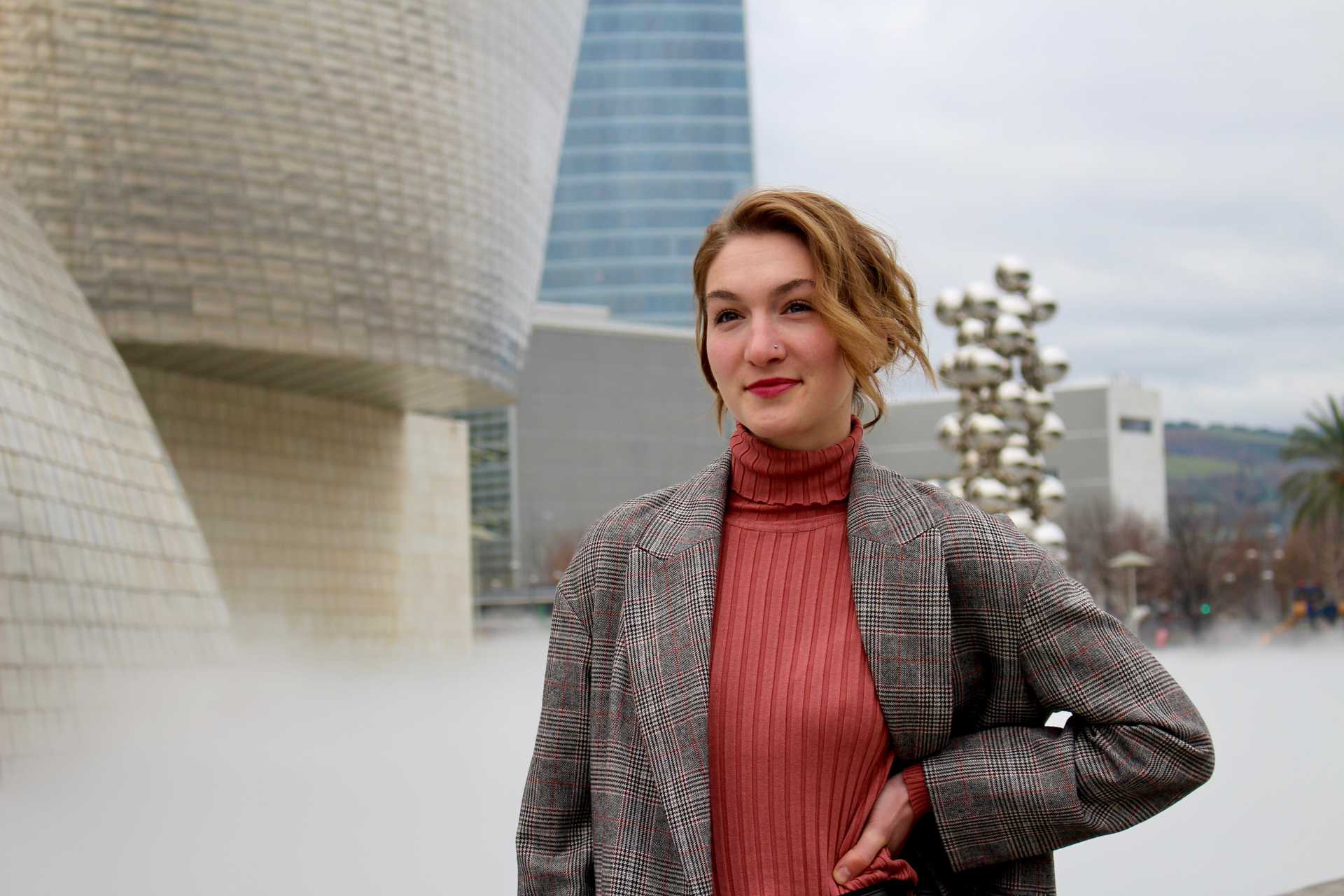
Awesome Careers: The Art and Science of Relationships featuring public health PhD graduate Alex Sawatzky
November 12, 2021
Alex Sawatzky has a passion for art and science.
“I work with both sides of my brain a lot of the time in the work that I do,” says Sawatzky. “Doodling has always been a way of visualizing and processing information for me.”
When she joined the Ontario Veterinary College (OVC) to pursue her PhD studies, Sawatzky pivoted her doodling into a unique approach to art and illustration that informed her research and continues to help her communicate concepts and themes to all kinds of audiences.
The first PhD graduate in Public Health in OVC’s Department of Population Medicine, Sawatzky will tell you the journey with her research was all about relationships.
Sawatzky’s PhD studies focused on developing an Inuit-led environment and health monitoring program with the community of Rigolet, Labrador, to use as they adapt to current and future climate change. Sawatzky’s co-advisors, Dr. Sheri Harper, formerly a faculty researcher in OVC’s Department of Population Medicine and now at the University of Alberta, and Dr. Ashlee Cunsolo, formerly at Cape Breton University and now at the Labrador Institute of Memorial University, had long-standing relationships and research partnerships with Rigolet Inuit.
During the final year of her undergraduate degree at U of G and the following summer, Sawatzky worked in Harper’s lab. Her work in the lab with Harper and Cunsolo evolved into her PhD project.
As she built relationships with Rigolet Inuit and other partners involved in the research project, Sawatzky drew on her natural inclination to use art as a way of communicating and mobilizing the research. “I think the visual component came out because that’s how I understand things.”
She began by talking with the Rigolet Inuit about what health and well-being means, what the environment means in relation to well-being, and why it’s important to track changes in the environment.
From these discussions, it became clear that “well-being” was about a connection to place, a sense of identity, purpose and belonging, and premised on relationships with the land.
“What do relationships with the land mean to this particular community? How does that inform priorities in terms of developing responses to climate change?” Sawatzky asks. “These priorities are often determined by the specific relationships that people have with the places that are changing around them. Incorporating these place-based relational concepts into a public health monitoring program is essential, especially when we’re looking at a big issue like climate change that affects everyone but affects everyone so differently.”
Over the course of her research, each time Sawatzky returned to the community with a summary of previous conversations, she often brought accompanying visuals in the form of infographics. “We would talk about the visuals together, revising and shaping the direction of the research based on that. I think with visuals there is lots of room for expansion and playfulness and back and forth. I didn’t want to impose my own interpretations, I wanted to say, ‘here’s what I heard you say. Is this a correct interpretation?’ Using visuals as tools allowed me to shape and strengthen my research project and partnership with that community.”
It’s a partnership that continues to grow.
Sawatzky is again working with Cunsolo, who was recently appointed founding Dean of the new School of Arctic and Subarctic Studies at the Labrador Institute of Memorial University. Sawatzky is the Special Projects Manager for the Labrador Institute, helping to oversee the development and growth of the new School.
The School will provide programming that is Northern-led and focused. “There is huge value in creating and strengthening place-based educational programming, research, and infrastructure that honours Northern and Indigenous self-determination over what education can look like.”
Ultimately, it comes back to relationships for Sawatzky.
“I think it’s important to remember that research is always about relationships,” she says. “And relationships don’t always have to be among people. Even if you’re working in a lab, you’re building relationships with the specimens you’re working with - they came from someone or somewhere, and they are helping you contribute and relate new understandings within a collective knowledge base.”

This story was originally published in the Fall 2021 issue of The Crest, the research, teaching and health care publication of the Ontario Veterinary College.
.png)